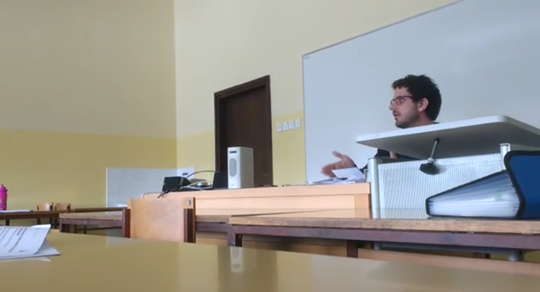Project member and doctoral candidate Santiago Truccone Borgogno gave a talk about "The Comparability of Harm: An Interpretation of the Disjunctive Notion of Harm".
Abstract: Some philosophers have advocated for the disjunctive notion of harm. The “disjunctive notion” understands as a necessary condition of harming to the disjunction between the actions that cause someone to be in a subthreshold state and the actions that cause someone to be worse off than this person would have been had the action not been carried out. However, such kind of accounts should explain in detail which of these two kinds of harm is worse. In this paper, I will try to provide an answer to this question. My argument will be based on Lukas Meyer’s disjunctive notion of harm. I will claim that harms might be quantitatively and qualitatively different. This distinction allows us to build four criteria to measure the severity of different kind of harms. Having straightforward criteria to know the severity of harms could help us in deciding how we should behave in those cases in which whatever the decision we make we will cause someone to suffer harm.
Schedule:
11.00-11.45 Matjaž Potrč (University of Ljubljana): Requiring and Favouring Reasons
11.45-12.30 Santiago Truccone Borgogno (University of Graz): The Comparability of Harm: An Interpretation of the Disjunctive Notion of Harm
12.30-12.45 Odmor/Break
12.45-13.30 Marko Jurjako (University of Rijeka): Normative Reason and Robust Objectivity: Revisiting Evolutionary Considerations
13.30-14.30 Kosilo/ Lunch
14.30-15.15 Kian Mintz-Woo (University of Graz): Against Philosophers Killing People (in Thought Experiments)
15.15-16.00 Nenad Miščević (University of Maribor & CEU Budapest): The Path to What Matters: Parfit’s Thought Experiments
16.00-16.30 Odmor za kavo/Coffee Break
16.30-17.15 Danilo Šuster (University of Maribor): Empty Questions, Profound Answers – Parfit on the Unimportance of Identity
17.15-18.00 Friderik Klampfer (University of Maribor): Parfit’s Prioritarianism, Aggregation and the Separateness-of-Persons Objection
